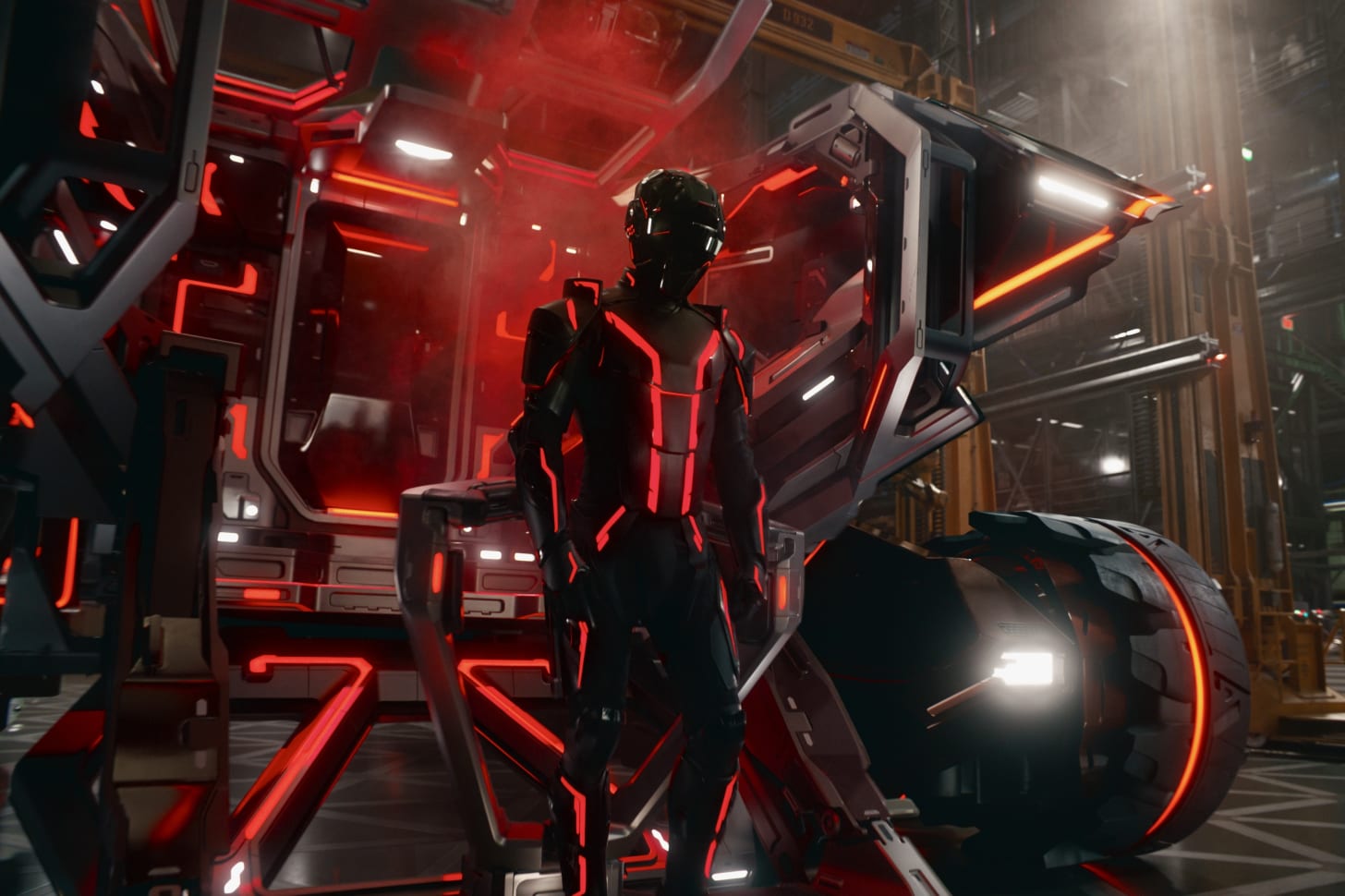Whatever you think of the 1982 movie Tron—I don’t care for it, myself, but your mileage may vary—you have to concede it had a pretty cool kernel of an idea. What if a guy who programmed video games could go inside the game and play against his own creations on their terms? What would the society of the programs look like? What would the rules be? How would he survive and escape?
That’s a neat idea! Completely divorced from how computers and computer games work, mind you, and a window into the extent we all considered computers to be little magical boxes of some sort—but a neat idea nevertheless. That the movie itself doesn’t really hold up and is dated in the absolute worst sort of ways, a relic of its time that feels as hokey as any of the Z-grade schlock mocked on Mystery Science Theater, is neither here nor there. The idea is sound, the nostalgia is there, and by God, if our studios are good for anything, it’s strip-mining cool ideas and nostalgia for parts.
Disney already attempted one such excavation of Tron in 2010 with Tron: Legacy. I’ll be honest: I much prefer it to the original—director Joseph Kosinski, who would go on to make Top Gun: Maverick, knows how to put together a killer action sequence and the music by Daft Punk is maybe the best cinematic score of this century—but it’s still not a great movie. It almost works as a feature-length music video, but even then feels too padded with plot. Who needs plot, I just want programs fighting each other while guys in robot masks rock the DJ booth. (That said, it did inspire an amazing ride at Walt Disney World, maybe the best ride in all the American parks, so perhaps all is forgiven.)
Tron: Ares attempts something interesting, in that it takes the cool idea at the heart of Tron (What if you could go inside a video game and fight the programs?) and reverses it (What if the programs came out of the game world and fought us in our own reality?). Attempts, but does not succeed: The problem with our world is that it is, frankly, kind of boring. As is this movie for long stretches.
Tron: Ares plays like a direct sequel to the original Tron; outside of a few mentions of Sam Flynn (Garrett Hedlund) and a brief tease at the end of this movie for a sequel that would tie Ares and Legacy together, there is almost no acknowledgment of Legacy at all. In an opening montage we learn that the Eve Kim (Greta Lee) and her sister took over as the heads of Encom, the company founded by Kevin Flynn (Jeff Bridges), who disappeared years before this film starts. Encom is in a race with Dillinger Systems to develop some sort of revolutionary AI that will change the world as we know it.
The revolution in question involves a technology that uses 3D printing to create programmed/designed items in the real world. Eve uses it to create a tree bearing fruit—which is somehow both simultaneously on the metaphorical nose yet also slightly askew, as if the writer kind of forgot how the whole Eden/Eve thing worked. Meanwhile, Julian Dillinger (Evan Peters) uses the technology to bring into the real world his super-security program, Ares (Jared Leto), and a tank from the Grid. Ares would be the world’s greatest weapon, if only he could exist for more than 29 minutes in meatspace. Eve and Julian are both searching for the solution to “permanence,” which will allow these creations to persist. And once Eve finds it, Julian will do anything to steal the forbidden knowledge to fuel his military-friendly AI warriors and earn a trillion dollars for Dillinger Systems in the process.
There are a handful of cool set pieces in Tron: Ares after all this setup: Ares and his lieutenant, Athena (Jodie Turner-Smith), chasing Eve on light cycles through the streets of Seattle; Eve and Ares returning to the Grid and then attempting to escape for reasons too convoluted to explain here; and the final fight involving military planes and a bright red Recognizer, the vaguely silly n-shaped hovering war machine from the program world. These are all set to new tracks by Nine Inch Nails, and while it’s a cool score, I have to be honest: it’s a step down from Daft Punk’s effort fifteen years ago. (There’s also one deeply silly sequence where Ares journeys to a server that resembles the computerized setting of the 1982 original, driving home again that this feels more like a sequel to that film than Legacy while also reminding us just how irredeemably goofy that film is.)
The biggest problem that comes with moving all this action into the real world is that video games must be based on rules—without rules you can’t have a game—and none of the rules are very consistently applied in our world. It’s not really clear how the programs can be killed here. Or how their light cycles work. Or whether the hard-light beams that emanate behind them always act as deadly barriers or sometimes simply as mild traffic inconveniences. On the Grid, the rules make sense: You crash into a barrier or get hit by a disc and you get derezzed. In Seattle, the rules are all much fuzzier, much less concrete, and therefore much less satisfying to those of us watching what should be a life-and-death “game.”
Even then it wouldn’t matter if we moved from sequence to sequence more efficiently. Every time things get going, however, director Joachim Rønning and writer Jesse Wigutow slam on the brakes, diverting us into first-year philosophy on the nature of self and purpose and duty, all with a dash of Ares channeling American Psycho’s Patrick Bateman by waxing rhapsodically about Depeche Mode and their brand of ’80s synthpop.
Tron: Ares certainly isn’t the worst film I’ve seen this year, but it’s one of the weirdest in that it actively resists accepting what makes the series so fun when it’s at its best. I’m not opposed to nostalgia cash grabs, I just prefer them to understand what we have nostalgia for.
.png)






